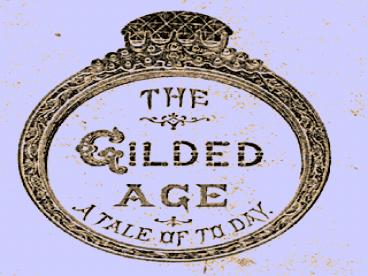Segregation - PowerPoint PPT Presentation
Title: Segregation
1
(No Transcript)
2
Segregation laws to separate white and black
people in public and private facilities. Segregat
ion laws became known as Jim Crow Laws. They
were put in place at schools, hospitals, parks,
and transportation systems throughout the south.
3
Poll Tax an annual tax that had to be paid
before qualifying to vote. Literacy Tests this
restricted African Americans from voting because
they were denied an education.
4
grandfather clause if a man failed a literacy
test or did not have enough money for the poll
tax, he was still entitled to vote if he, his
father, or his grandfather had been eligible to
vote before January 1, 1867.
5
Booker T. Washington He was born a slave and
became the most famous black leader during the
late 19th century. He believed that African
Americans should built their own economic
resources and not focus on Jim Crow Laws.
6
W.E.B. Du Bois Earned a Ph.D. from Harvard
University in 1896. He believed that African
Americans should demand full and immediate
equality and not limit themselves to vocational
education.
7
Ida B. Wells a writer who fought for civil
rights for African Americans, she became involved
in civil rights after witnessing three friends
lynched without a trial. She bought a newspaper
and named it Free Speech.
8
Plessy vs. Ferguson
Separate but Equal Supreme
Court decision in 1896, that ruled that the
segregation of races in public accommodations was
legal and did not violate the 14th
amendment. Discrimination and violence toward
African Americans did not just happen in the
South, but also in the North.
9
- More Discrimination
- Chinese Immigrants faced discrimination on the
west coast. They were accused of taking white
jobs. - Railroads hired more Mexicans than any other
ethnic group to construct rail lines. Mexicans
were also hired to work in the agricultural
business. - Debt Peonage a system that bound labors into
slavery in order to work off a debt to the
employer.
10
Susan B. Anthony She along with Elizabeth Cady
Stanton formed the National Women Suffrage
Association to fight for a constitutional
amendment that would grant women the right to
vote. She passed away in 1906 never seeing the
19th Amendment added to the Constitution.
11
- Political Machines an organized group that
controlled a political party in a city. - Political Boss may or may not have been the
mayor, but had great influence. - Precinct workers and captains worked under the
political boss.
12
William (Boss) Tweed was the head of Tammany
Hall, New Yorks citys powerful Democratic
political machine. Defrauded the city out of
millions of dollars between 18691871.
Graft illegal use of political influence for
personal gain.
13
Patronage the giving of government jobs to
people who had helped a candidate get
elected. Civil Service reformers wanted to see
the practice of patronage gone. They favored the
practice of the merit system, jobs should go to
the most qualified person.
14
Rutherford B. Hayes He could not convince
Congress to support the reforms. He named
independents to his cabinet and set up
commissions to investigate corrupt officials.
When Hayes did not run for re-election in 1880,
the republican convention turned into a free for
all between the Stalwarts who opposed changes in
the spoils system, and the reformers.
15
- James A. Garfield he was an independent who
favored the reformers, because the convention
could not settle on a candidate. - Chester A. Arthur was nominated as
vice-president to balance the ticket, he favored
the Stalwarts. - Garfield was assassinated by a Stalwart, however,
when Arthur became president he turned into a
reformer.
16
Pendleton Civil Service Act of 1883 authorized
a bipartisan civil service commission to make
appointments to federal jobs through a merit
system based on candidates performance on an
examination. With the reforms in place,
politicians turned elsewhere for campaign
contributions, wealthy business owners.































